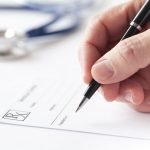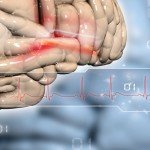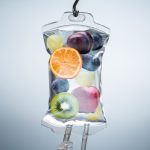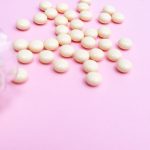Use of Antimalarial Drugs May Not be Possible For COVID-19 Due to Lack of Global Supply
Node Smith, ND
Limited global supplies may scupper proposals to use the antimalarial drugs, chloroquine and hydroxychloroquine, to lessen the symptoms of Covid-19 infection or ward it off altogether, say Italian doctors in a letter published online today in the Annals of the Rheumatic Diseases.
Results of preliminary lab tests prompt scientists to propose that antimalarial drugs be used to treat patients with pneumonia caused by Covid-19
The results of preliminary lab tests have prompted scientists to propose that these drugs be used to treat patients with pneumonia caused by Covid-19 infection. This approach has already been included in Chinese guidelines on how best to manage the disease.
Various studies over the past decade have shown that antimalarial drugs can lessen the impact of viral infections, including Covid-19. And clinical trials are now under way to see whether these drugs might help ward off the disease altogether.
Chloroquine and hydroxychloroquine
Chloroquine and hydroxychloroquine have been used to treat autoimmune disease, including rheumatic diseases, since the 1940s, and have proved safe and well tolerated in most cases, say the authors.
Side effects of chloroquine and hydroxychloroquine
Side effects are generally mild to moderate, with serious complications, such as retinal and cardiac damage, rare and related to cumulative doses over a long period of time.
An issue of ethics as no hard evidence from clinical trials confirms these drugs can prevent the spread of Covid-19
There is an ethical issue, however, as there is as yet no hard evidence from clinical trials that these drugs can prevent the spread of Covid-19, they point out.
“Is it permissible to take a controlled risk in the event of a pandemic?” they ask.
“In such a case: would it be reasonable to consider antimalarials as primary prophylaxis in healthy subjects living in highest risk regions or, at least, to use them in those testing positive for Covid-19, but still asymptomatic?”
The safety and effectiveness of these drugs makes them good candidates for mass preventive treatment programmes, they add, and scientists seem to be leaning towards adopting this approach.
But, conclude the authors: “If mass prophylaxis was accepted as an option worldwide, this would raise the question of whether there is enough supply of [chloroquine] and [hydroxychloroquine] to support this approach.”
The European League Against Rheumatism (EULAR), which co-owns the Annals of the Rheumatic Diseases with BMJ, says that the use of these drugs to tackle Covid-19 could have serious implications for people with rheumatic diseases across Europe.
EULAR President, Professor Iain McInnes, says that global efforts to boost the evidence base for the use of these antimalarial drugs to treat Covid-19 are extremely welcome.
But he adds: “EULAR is concerned, however, that the diversion of drug supplies away from people with rheumatic and musculoskeletal diseases may compromise the health of this important and sizeable group of patients in Europe and beyond.”
(PARE) is now calling on the manufacturers of these drugs to rapidly increase production
EULAR’s patient membership group (PARE) is now calling on the manufacturers of these drugs to rapidly increase production to meet the projected surge in demand.
“A balanced approach that meets the imperatives of the ongoing pandemic, but which also takes account of the needs of patients already taking these drugs is essential,” insists Professor McInnes.
1. Francesca Romana Spinelli, Fulvia Ceccarelli, Manuela Di Franco, Fabrizio Conti. To consider or not antimalarials as a prophylactic intervention in the SARS-CoV-2 (Covid-19) pandemic. Annals of the Rheumatic Diseases, 2020; annrheumdis-2020-217367 DOI: 10.1136/annrheumdis-2020-217367

Node Smith, ND, is a naturopathic physician in Humboldt, Saskatchewan and associate editor and continuing education director for NDNR. His mission is serving relationships that support the process of transformation, and that ultimately lead to healthier people, businesses and communities. His primary therapeutic tools include counselling, homeopathy, diet and the use of cold water combined with exercise. Node considers health to be a reflection of the relationships a person or a business has with themselves, with God and with those around them. In order to cure disease and to heal, these relationships must be specifically considered. Node has worked intimately with many groups and organizations within the naturopathic profession, and helped found the non-profit, Association for Naturopathic Revitalization (ANR), which works to promote and facilitate experiential education in vitalism.









